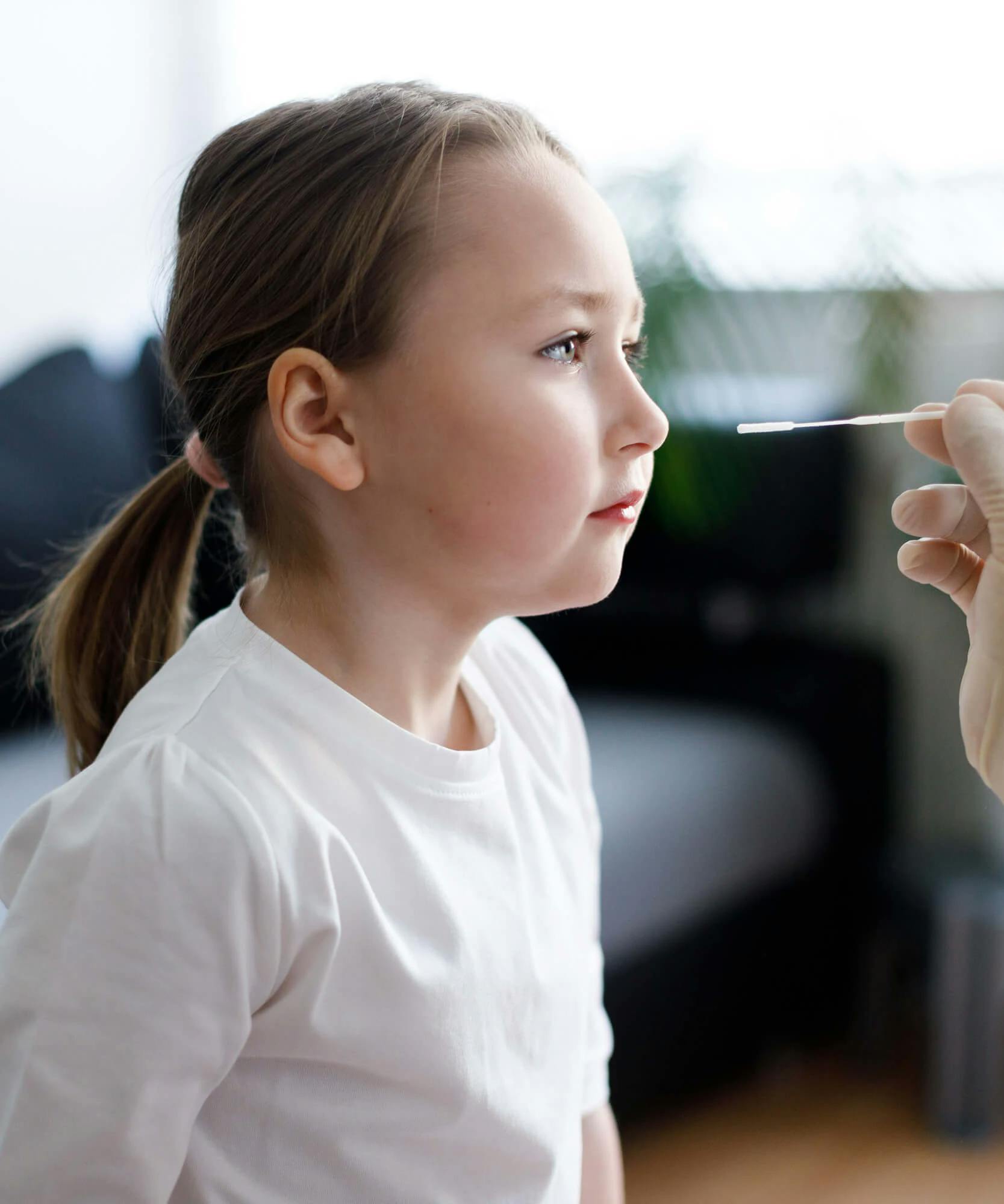Children Are Most At-Risk To Toxic Chemicals In At-Home Covid Test Kits
Some at-home Covid testing kits contain a toxic substance that’s raising concerns across the country.

The Biden administration has been promoting these at-home Covid-19 testing kits since January. The White House released a statement which declared, “To help ensure Americans have tests on hand if a need arises, the Biden Administration is purchasing one billion at-home, rapid Covid-19 tests to give to Americans for free. A half-billion tests will be available for order on January 19th and will be mailed directly to American households.”
But with professional medical error being the nation’s leading cause of accidental death, the presence of a toxic chemical in these kits, and the fact that most Covid-19 cases don’t pose serious risks, should these tests really be mailed out to people’s homes?
What Is the Substance and Which Kits Have It?
The substance that’s causing concern, and an increase in poison control calls, is sodium azide. Sodium azide is a colorless, tasteless, and odorless powder that’s an ingredient in the liquid reagent used to test the nasal swab. It’s primarily used as a preservative, but it has been used in the past as an herbicide and in the process of making rubber.
Poison Control says that while it’s “a very potent poison, and ingestion of relatively low doses can cause significant toxicity…the amount of sodium azide in most rapid antigen kits is much lower than the amount expected to cause poisoning if swallowed by an adult. However, the extraction vials do look like small squeeze bottles or eye droppers. Some people may accidentally confuse them with medications and apply the drops into their eyes or nose, which may cause irritation. People also may spill it on their skin which can cause skin irritation or chemical burns. Small children may accidentally swallow the contents of the vial.”
People may spill it on their skin which can cause skin irritation or chemical burns.
As at-home testing rises in popularity, so do poison control interventions regarding sodium azide. An estimated 200-plus cases have already been reported from various poison centers across the U.S. This number is expected to grow as more and more kits come through the mail.
The BinaxNow, BD Veritor, Flowflex, and Celltrion DiaTrust test kits all contain sodium azide.
The Risks
Poison Control claims the risks are low, but with medical trust down (after people have been lied to many times throughout the pandemic) shouldn’t we just use the same “better to be safe than sorry” tactics politicians did when locking us down and skip the test unless we display symptoms and need medical care? This is a valid question, especially being that death can occur as a side effect of ingesting sodium azide.
Poison Control noted that “When swallowed, sodium azide can cause low blood pressure, dizziness, headache, and heart palpitations. In more severe cases, seizures, loss of consciousness, and death may occur.”
Sodium azide can cause low blood pressure, dizziness, headache, and heart palpitations.
Parents especially need to take note, because that last symptom offers no recovery from ingesting a chemical in a kit that tests for a virus that virtually does nothing to children and has been circulating through the U.S. for more than 2 years now.
Fortunately, it seems that most of the cases have been skin irritation from getting the contents of the vial on your hands while testing. One woman confused the vial and dropper with her eye drops and suffered eye irritation and redness. But one 3-year-old boy grabbed the vial and stuffed it in his mouth – and that is the kind of scenario that most worries me. Children are more likely to swallow chemicals if parents don’t keep kits secured, resulting in serious side effects.
Closing Thoughts
The president of our country ordered one billion kits. That’s enough for more than double the entire United States population. That seems a bit over-budget to offer “free” tests that contain a toxic chemical that could kill people.
If you're like my mother-in-law, who tests herself regularly out of fear, beware and follow the instructions step-by-step. If you have a child with low blood pressure (like my daughter who inherited it from me), be careful. It’s important to always keep medical equipment and pills away from children, but even more so for these mailed out at-home Covid testing kits.
Readers make our world go round. Make your voice heard in the official Evie reader survey.